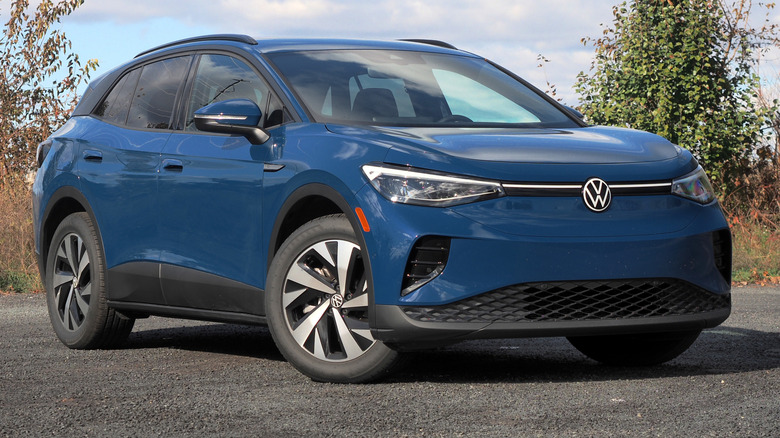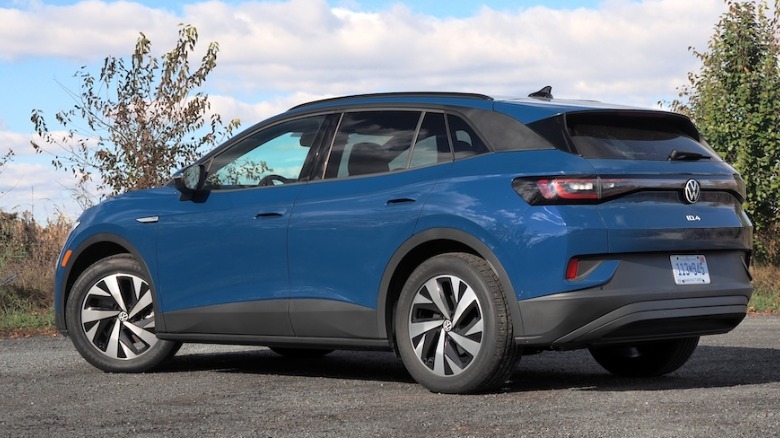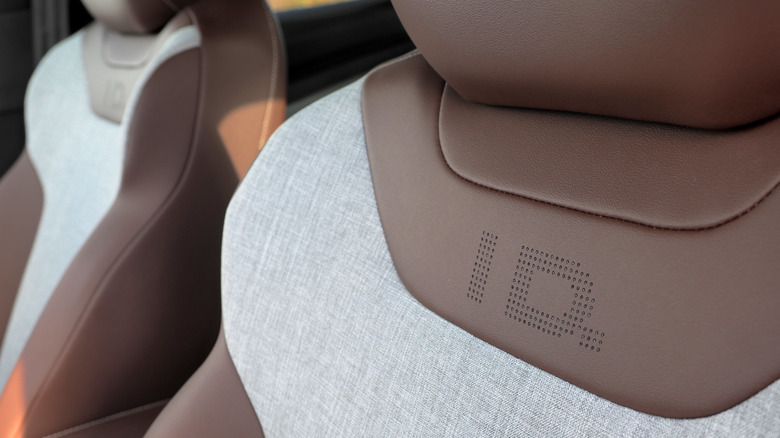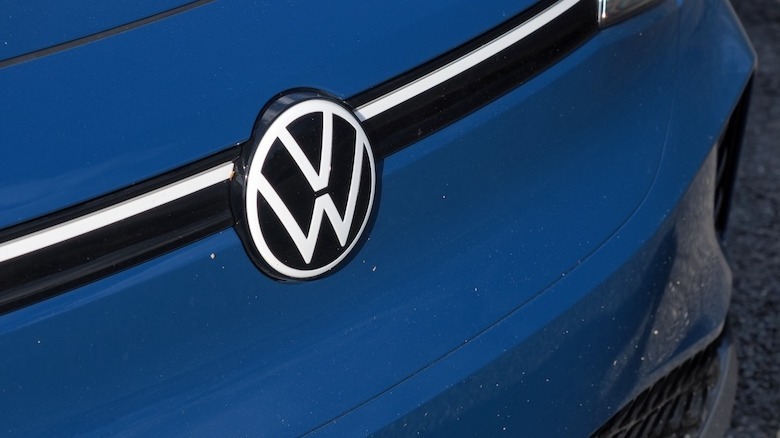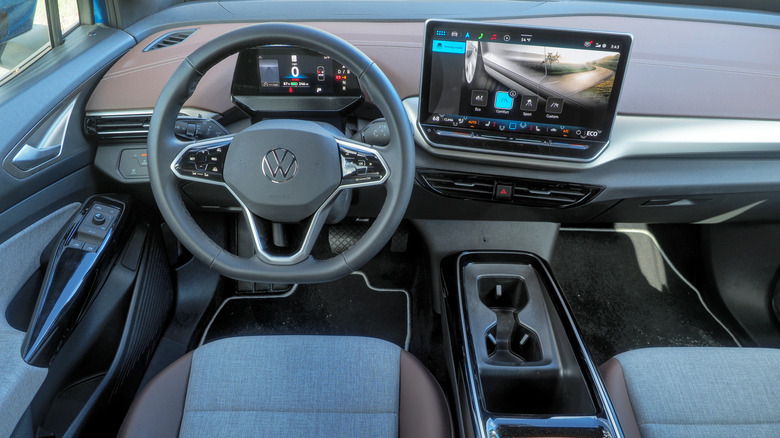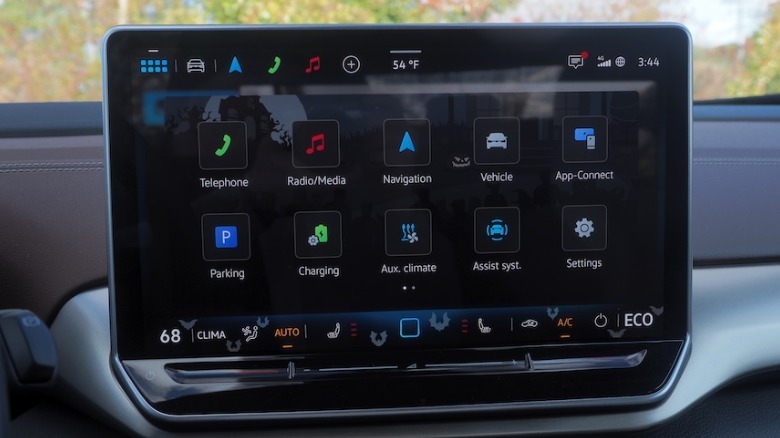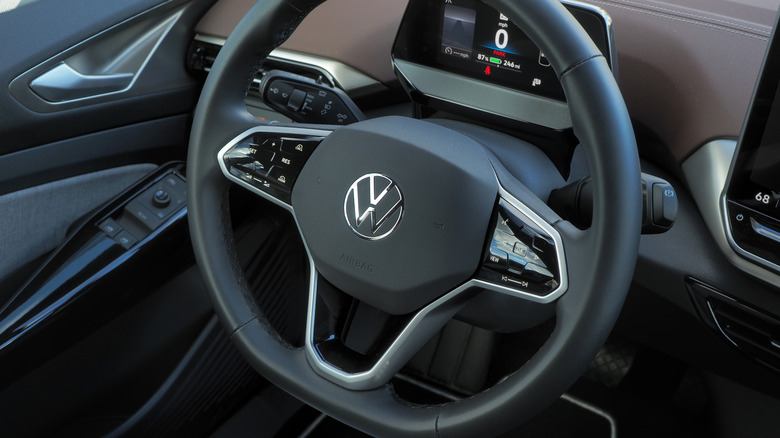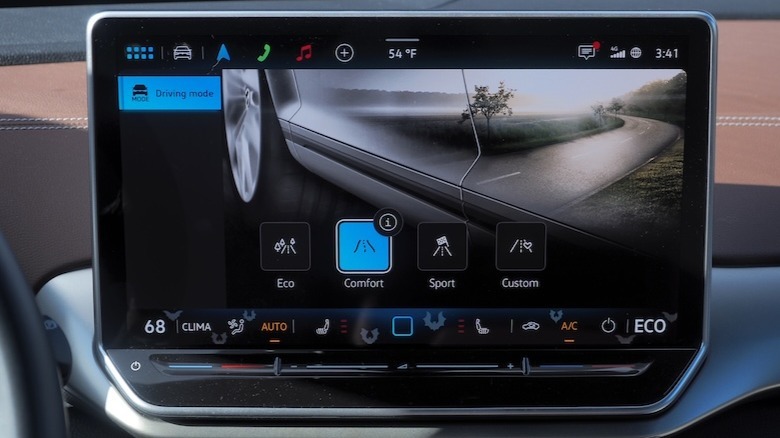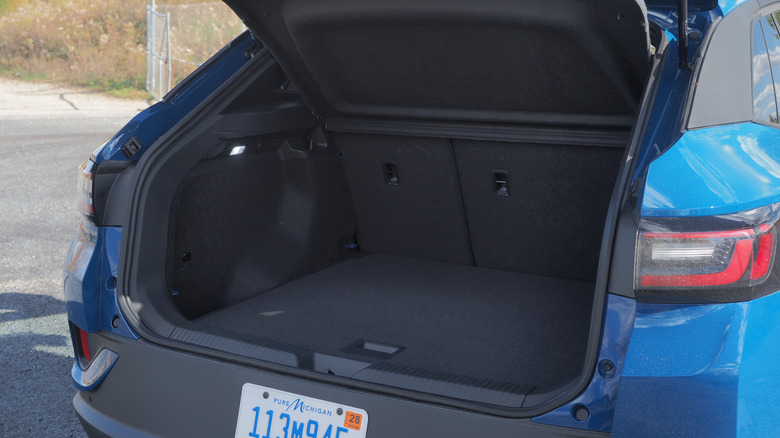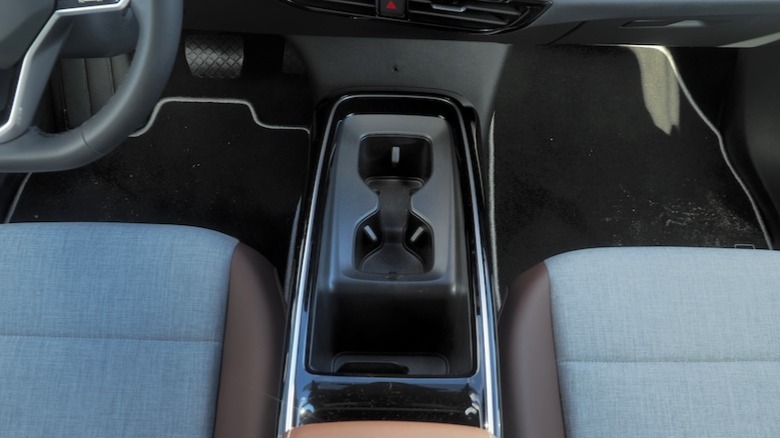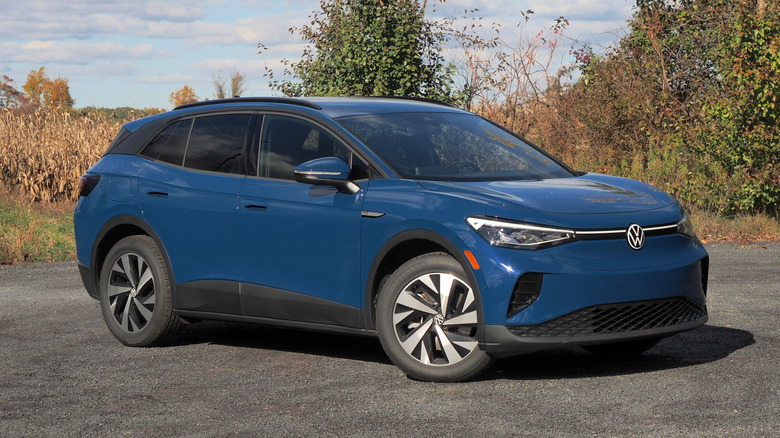Can The VW ID.4 Shake Its Dull Reputation Before It's Too Late?
For a while, it seemed like Volkswagen was genuinely taking electrification in North America seriously. Yes, market reasons may have made it skip the ID.3, but the roughly Golf-scale ID.4 arrived with suitable fanfare. It held down the fort until the charmingly unique (and frequently delayed) ID. Buzz landed in the U.S. in late 2024.
An odd duo, to be sure, but VW looked intent on filling in that broad gap. Well, that was the plan, up until more of those North American market reasons left it pulling the plug on a U.S. release of the ID.7 electric sedan. ID. Buzz demand — possibly due to limited initial supplies, middling range, and a not-inconsiderable price tag — has failed to set the market alight, and production of the EV microbus is now on hold, too.
Things for the ID.4 are looking fairly lonesome, and a lukewarm (to put it mildly) attitude toward electric vehicles in the U.S. doesn't seem set to change that any time soon. While rival automakers have pivoted to plug-in hybrids to fill the gap, Volkswagen eschewed such a strategy in North America. With its line-up split starkly into "EV or not EV," can the ID.4 carry the company's green fortunes alone?
Straightforward trims and a starting price under $47k
There was a lot to get excited about when VW first announced the ID.4. Based upon the Volkswagen Group's MEB platform for electric vehicles, it promised flexibility in motor configurations, battery size, and eventual price. Indeed, both the Golf-ish scale ID.4 and the much larger ID.Buzz bus rely on the same highly-adaptable MEB architecture. Filling in the MEB gaps happened more in Europe, however, and often on cars bearing brands unfamiliar – or, at least, unsold — in the U.S.
Today, there are five variants of the ID.4, starting at $46,520 (including $1,425 destination) for the base Pro trim with a single rear 282 horsepower motor and an EPA rating for 291 miles of range. An AWD version adds a front motor, pushes power to 335 hp and cuts range to 263 miles, in return for a further $3,900.
The same strategy applies to the Pro S and AWD Pro S (at $51,620 and $55,520 respectively), while the flagship ID.4 AWD Pro S Plus is dual-motor only for $58,720 all-in.
The cabin is tidy and almost headache-free
Inside, only a few head-scratchers mar what's otherwise a perfectly pleasant cabin. VW's seats — finished here in a handsome and durable tan faux leather and gray cloth — are supportive; the center console, though large, offers plenty of storage cubbies; and front and rear space are both plentiful. The 30.3 cu-ft trunk expands to a decent 64.2 cu-ft with the 60/40 split rear bench folded.
There's a lot going on in the infotainment interface, on the standard-fit 12.9-inch touchscreen, but at least the temperature and volume sliders underneath are now backlit, and there's wireless Apple CarPlay and Android Auto support.
VW's decision to fit just two electric window switches on the driver's door, though — and have you toggle between it controlling the front or back windows with a touch-sensitive button that's perfectly placed for accidental taps — remains a frustration. Was saving a few cents on switches really worth it?
Simple to drive
That clunkiness is atypical, though, compared to how straightforward the ID.4 is most of the time. Twist the right hand stalk to select drive; twist again to switch to the "B" mode which cranks up the regenerative braking levels. There are four drive modes — Eco, Comfort, Sport, and the driver-customizable Individual — which impact things like accelerator response and steering, though nothing so fancy as adaptive suspension.
Honestly, though, the ID.4 doesn't need that added complexity. It's as eager to dart away from a standing start as we've come to know — and love — about EVs in general, even if it lacks that "rearrange your internal organs" outright pace that the more potent of the breed deliver. Again, that's right in keeping with the target audience here.
Do I wish VW would cash in on its GTI heritage and do for the ID.4 what, say, Hyundai did with its Ioniq 5 N? Bringing more spice to its EV lineup wouldn't be a bad thing, even if profligacy with the electrons would dim range somewhat. After all, if the ID. Buzz didn't work out as quite the electric halo that Volkswagen hoped it would be, maybe a performance play would land better?
Driving is all the battery is good for
Then again, range could be a somewhat sore topic. The ID.4's 82 kWh battery pack (77 kWh of which is usable) is EPA-rated for 291 miles in the single-motor version, dipping to 263 miles for the dual-motor. That's short of the 288 miles that both the 2026 Toyota bZ and Chevrolet Equinox EV are rated for in their AWD forms.
In practice, the ID.4's 3.5 mi/kWh performance during my loan means its official estimate is certainly achievable, even if it's not the best of its class. The 175 kW DC fast charging support for topping up on the move is par for the course, too, with VW sticking with the CCS charge port rather than NACS. Figure on a 10-80% charge taking around 28 minutes, VW says. Not the fastest, but not dire either, and up to 11 kW home charging is nice to see (assuming you have a suitably potent Level 2 charger installed).
While Volkswagen's EVs can be used for all manner of clever V2H and bidirectional power configurations in Europe — potentially allowing the ID.4's battery to double as a home energy backup — right now it seems North American owners are out of luck. In fact, while there may be four USB-C ports (two in the front of the cabin, and two in the rear), the ID.4 lacks even a 110V AC outlet.
Fine is not good enough
As a whole, Volkswagen Group's efforts in electrification are worth paying attention to. Audi's latest e-tron models have added range and refinement; Porsche's new electric Macan is so good, even cynics have been left curious about the upcoming electric 718 generation. Outside of North America, the car behemoth has a whole host of EVs bearing a whole range of nameplates.
Viewed in its near-isolation of VW's mainstream electric lineup in the U.S., though, the ID.4 is forgettable. Rival EVs are sportier or go further on a charge; they can generously lend their power to homes in outages, or campsites during weekend getaways.
The ID. Buzz — for all its compromises and its premium price tag — has personality in spades. The ID.4 is a perfectly satisfactory compact crossover that happens to be fully electric, and while that might be just swell as part of a comprehensive line-up of other EVs, here that doesn't feel enough to carry all of VW's ambitions.
